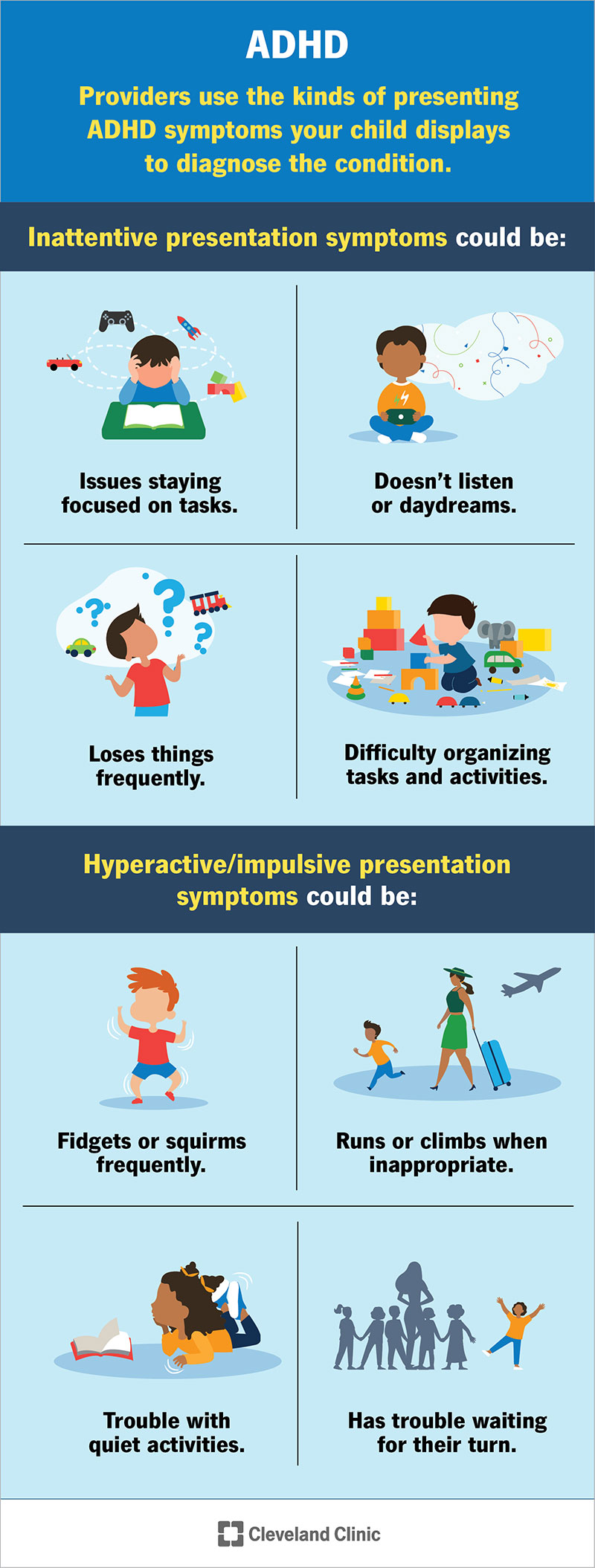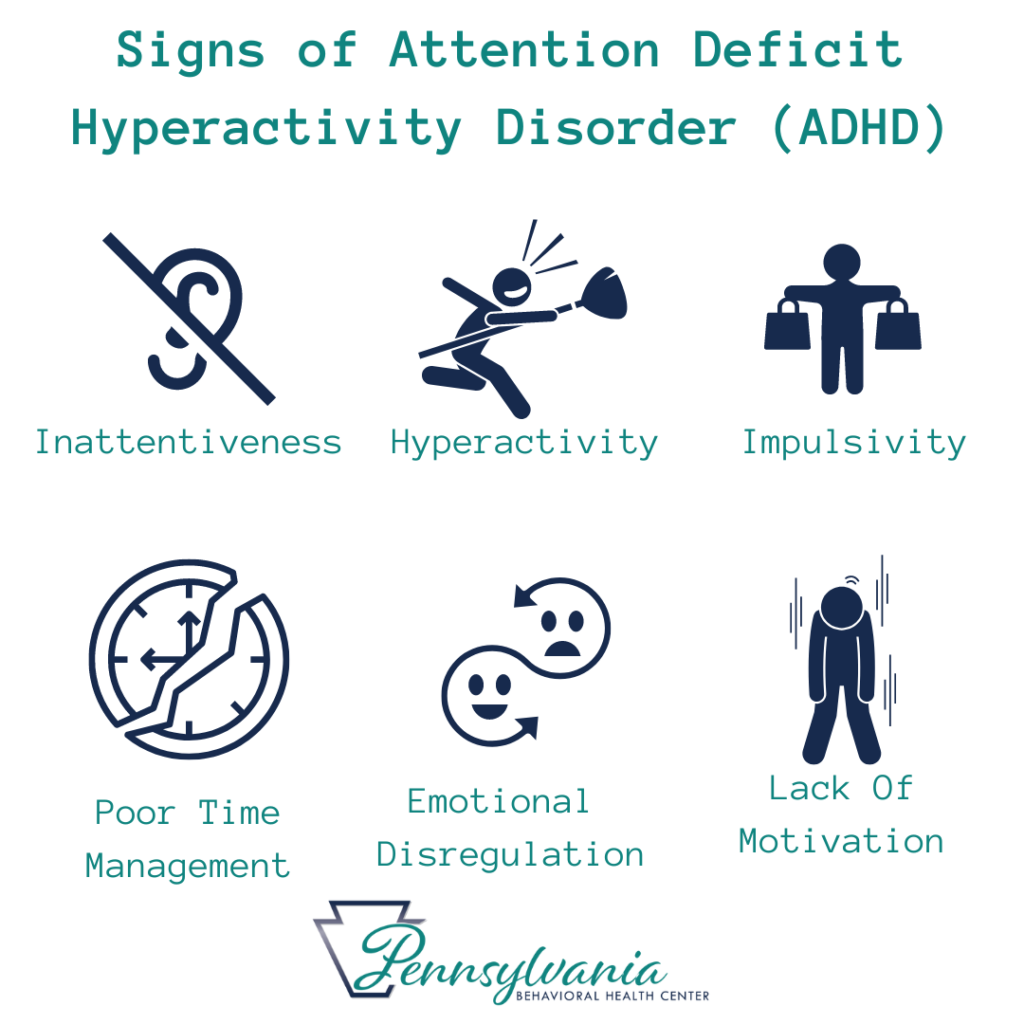Discovering Effective ADHD Therapy Options for All Ages
The intricacies of Attention deficit disorder (ADHD) present one-of-a-kind difficulties throughout various age, demanding an extensive expedition of efficient therapy choices. A mix of behavioral therapies, medicinal interventions, and way of life adjustments has actually revealed assurance in dealing with the diverse needs of individuals with ADHD. The efficacy of these techniques can differ dramatically based on individual scenarios, increasing essential inquiries regarding tailored methods. As we check out the spectrum of therapy methods offered, it becomes necessary to consider not just their prompt effects however additionally their long-term effects for people and families.
Understanding ADHD and Its Impact
Attention-Deficit/Hyperactivity Condition (ADHD) is a neurodevelopmental condition defined by consistent patterns of inattention, attention deficit disorder, and impulsivity that can considerably affect different aspects of an individual's life. It typically shows up in childhood years, although signs can persist into their adult years. The core symptoms of ADHD can interfere with instructional performance, prevent social interactions, and make complex job-related endeavors.
People with ADHD often have problem with maintaining focus on tasks, organizing activities, and following up on directions, which can result in scholastic underachievement (Depression Treatment). In social contexts, impulsivity may lead to troubles in creating and sustaining relationships, as individuals may disrupt conversations or make hasty choices without thinking about effects
The variability in sign presentation suggests that ADHD can influence individuals differently, demanding an individualized approach to management. Comprehensive recognition of ADHD's nature and ramifications lays the groundwork for discovering suitable treatment alternatives customized to each person's requirements.
Behavioral Therapies for ADHD
Countless behavior modifications have been established to successfully deal with the difficulties associated with ADHD, concentrating on changing certain actions and promoting essential skills. Among the most identified techniques are cognitive-behavioral therapy (CBT), parent training, and social abilities training.
CBT assists individuals identify and transform unfavorable idea patterns and habits, advertising a much more favorable expectation and enhanced self-regulation. This therapy frequently consists of functional methods for managing impulsivity and enhancing organization. Moms and dad training programs equip caregivers by outfitting them with methods to enhance favorable behaviors and set regular borders, which can be particularly valuable for youngsters with ADHD.
Social abilities training is another essential component, teaching people with ADHD exactly how to connect successfully with peers - Depression Treatment. This method often involves role-playing and responses to enhance interaction, cooperation, and conflict resolution skills
Including these behavior therapies into a detailed therapy plan can considerably improve functioning and top quality of life for individuals with ADHD. Inevitably, the efficiency of these treatments depends on customized approaches that consider the unique requirements of each individual, therefore fostering durability and flexibility in life.
Medication Options Available
For lots of people with ADHD, drug can play a significant role in handling symptoms and boosting general performance. The 2 key groups of medicines prescribed for ADHD are stimulants and non-stimulants.
Stimulants, such as methylphenidate and amphetamine-based medicines, are the most commonly used therapies. These medications function by increasing the degrees of neurotransmitters, particularly dopamine and norepinephrine, in the brain, which helps enhance attention and decrease impulsivity and attention deficit disorder. They usually yield rapid results, making them a preferred option for many patients.

It is vital for health care carriers to conduct a complete assessment to establish the most suitable medication based upon private demands, clinical background, and prospective side impacts. Routine follow-up and monitoring are also crucial to guarantee the efficiency of the chosen treatment and to make any type of necessary changes.
Way Of Living Changes to Consider
Managing ADHD effectively prolongs past drug, as way of life adjustments can dramatically enhance overall health and symptom control. Integrating structured regimens is crucial; consistent routines assist people with ADHD handle their time properly and decrease feelings of overwhelm.
Routine physical activity is another crucial part. Workout not only helps to enhance concentration yet also enhances mood and reduces stress and anxiety degrees. Tasks such as yoga exercise or group sporting activities can be particularly advantageous, promoting both physical health and fitness and social interaction.
Nutrition likewise plays an essential duty. Depression Treatment. A balanced diet regimen abundant in omega-3 fatty acids, entire grains, and lean healthy proteins can add to improved focus and cognitive feature. Limiting sugar and refined foods is a good idea, Visit This Link as these can exacerbate attention deficit disorder and impulsivity
Sleep hygiene is essential for managing ADHD symptoms. Developing a normal sleep timetable and creating a restful atmosphere can improve rest quality, resulting in much better focus and emotional policy.
Alternate and All Natural Strategies
Different and holistic methods to ADHD therapy use a varied series of options that complement typical approaches. These approaches usually concentrate on way of life adjustments, dietary treatments, and healing methods that intend to boost total health while resolving ADHD symptoms.

Mindfulness and behavior therapies are additionally acquiring traction as alternative interventions. Practices such as yoga, reflection, and cognitive-behavioral treatment can grow self-regulation and improve focus. These methods support emotional durability, which is particularly valuable for people with ADHD.
Herbal supplements, such as ginkgo biloba and ginseng, are occasionally explored; however, it is essential to get in touch with healthcare experts before integrating these right into treatment strategies. While alternative and alternative approaches can give valuable support, they should preferably see page be utilized in combination with evidence-based therapies to achieve optimal results for managing ADHD across every ages.
Conclusion
In summary, efficient ADHD treatment requires a detailed approach that consists of behavioral therapies, medicine, way of life adjustments, and holistic techniques. This complex method underscores the value of personalized care in addressing the varied needs of individuals with ADHD throughout all age teams.